|
Energy drinks have become a popular beverage choice among various age groups, promising quick boosts in energy, alertness, and physical performance. However, scientific literature increasingly highlights a range of adverse health effects associated with their consumption. Role of active ingredients within Energy drinksOne of the primary ingredients in energy drinks is caffeine. Known for its ability to increase alertness and reduce fatigue, caffeine is a central nervous system stimulant that affects the body in several ways. One critical action of caffeine is its ability to block adenosine receptors. Adenosine is a neurotransmitter that typically promotes relaxation and sleep by dilating blood vessels. By blocking these receptors, caffeine prevents blood vessels from relaxing, which can lead to increased blood pressure. Additionally, the blockage of adenosine receptors leads to an accumulation of adenosine in the blood. This rise in adenosine levels activates the sympathetic nervous system, which is responsible for the body's fight-or-flight response. Consequently, there is an increase in the production of stress hormones such as adrenaline and cortisol. These changes can lead to heightened anxiety, nervousness, and even palpitations. Guarana is another common ingredient found in energy drinks. This plant, native to the Amazon basin, contains seeds that are exceptionally rich in caffeine, often surpassing the caffeine content found in coffee beans. The inclusion of guarana in energy drinks amplifies their overall stimulatory effects, making the beverages even more potent. The high caffeine content in guarana adds to the risk of overconsumption of caffeine when individuals drink energy beverages, especially if they also consume other caffeinated products like coffee or tea throughout the day. This excessive intake can exacerbate the negative side effects of caffeine, including jitteriness, insomnia, and heart palpitations. B vitamins are essential nutrients that play a crucial role in various bodily functions, including energy production and brain function. Energy drinks often contain high levels of B vitamins, such as B6 and B12, to promote energy and metabolic function. While B vitamins are vital for health, their effects can become problematic when consumed in large quantities alongside caffeine. In large doses, B vitamins can support the stimulatory effects of caffeine and guarana, potentially leading to overstimulation. This can result in adverse effects such as increased heart rate, anxiety, and restlessness. Moreover, some people may experience side effects like gastrointestinal disturbances or allergic reactions due to high doses of B vitamins. Taurine is a common additive in energy drinks, contributing to their stimulating effects. It can interact with caffeine to induce intracellular calcium release. This process can disrupt the normal calcium balance within cells, particularly in the heart and muscles. According to a study published in Reviews in Cardiovascular Medicine, "short term exposure to taurine increases intracellular levels of calcium in vascular smooth muscle cells and the heart, leading to a positive inotropic effect." Positive inotropic agents, including caffeine, increase the amount of calcium available in heart cells, enhancing the heart's ability to contract more forcefully. While this can be beneficial in certain medical situations, excessive stimulation from such agents poses potential risks. Despite these concerns, taurine itself has numerous health benefits when consumed appropriately. a deeper dive into taurineTaurine, a unique amino acid, plays several critical roles in the body. Unlike many other amino acids, taurine is not used to build proteins. Instead, it supports nerve growth, produces bile salts, aids in digestion, and helps maintain proper hydration. Taurine is classified as a "conditionally essential" or semi-essential amino acid. This means that while the body can naturally produce taurine, supplementation might be necessary under certain conditions. For example, infants and individuals with specific medical conditions might need additional taurine. Taurine acts as an antioxidant and anti-inflammatory agent, which may help combat sarcopenia, an age-related condition characterized by the loss of muscle mass and function. Taurine is also the most abundant source of sulfur in the body and is required for a wide range of physiological processes, including immune function, nervous system health, metabolism, and digestion. Recent research, published in the June 2023 issue of the journal Science, highlights taurine's role in promoting longevity and healthy aging. This underscores the importance of obtaining taurine from natural sources rather than relying on synthetic forms found in energy drinks. Taurine is abundant in animal foods such as seafood, red meat, poultry, and dairy products. Vegans, however, may need to consider high-quality taurine supplements since they do not consume these foods. While the body can synthesize some taurine, the amount produced may not be sufficient, especially as one ages and the body's ability to synthesize taurine diminishes. Taurine is a vital nutrient with numerous health benefits, particularly when consumed through whole foods or high-quality supplements. While energy drinks often contain taurine, they are not a safe or reliable source of this or other essential nutrients. For those looking to boost their taurine intake, focusing on natural dietary sources or appropriate supplementation is key to reaping its health benefits without the risks associated with energy drinks. Known adverse health effects
Pharmacologic Actions of Energy Drinks
Increase in sudden cardiac arrestEnergy drinks have come under intense scrutiny after research linked their consumption to sudden cardiac arrest. The blend of stimulating ingredients in energy drinks could significantly jeopardize heart health, especially in individuals with specific genetic heart conditions. Researchers from the Mayo Clinic have suggested that energy drinks might be "arrhythmogenic foods," which could heighten the risk of sudden cardiac arrest. Sudden cardiac arrest happens when there is an abrupt failure in the heart's electrical system, causing it to stop beating. This can result in arrhythmia, or an irregular heartbeat, such as ventricular fibrillation—the leading cause of cardiac arrest. Ventricular fibrillation is characterized by a heartbeat so rapid that the heart quivers instead of pumping blood effectively. Researchers suggested that the highly stimulating and unregulated ingredients in these beverages might alter heart rate, blood pressure, cardiac contractility, and cardiac repolarization, potentially leading to arrhythmias. Energy drinks usually contain a high amount of caffeine—ranging from 80 milligrams (mg) to 300 mg in a 16-ounce serving—along with other stimulant ingredients. Caffeine itself has been associated with sudden cardiac death in previous studies. Recently, Panera Bread removed caffeinated lemonade from its menu after lawsuits alleged the product caused two deaths from cardiac arrest. While the relative risk of sudden death after consuming an energy drink is small, the absolute risk for patients with a known genetic heart condition is concerning. For these individuals, the risks and benefits of consuming energy drinks should be carefully considered. The researchers concluded that there should be an early warning about the potential risks of these drinks for people with genetic heart diseases. How to boost energy naturallyIf your energy is lagging and you're struggling with brain fog, energy drinks are not the answer. While they may provide a temporary boost, they come with significant health risks. Instead, optimizing your mitochondrial function is one of the most effective and sustainable strategies to increase your cellular energy. Mitochondria are the powerhouses of your cells, producing the energy your body needs to function. Ensuring that your mitochondria are working efficiently can have a profound impact on your energy levels and overall vitality. Here are some key steps to optimize mitochondrial function:
energy Drink AlternativesFrom a integrated perspective, the focus is on holistic and sustainable approaches to boost energy rather than quick fixes like energy drinks. Here are some better alternatives that can provide a midday energy boost: Beverages 1. Herbal Teas
2. Lemon Water with a Pinch of Sea Salt
Supplements 1. B-Complex Vitamins
2. Magnesium
3. Coenzyme Q10 (CoQ10)
4. Adaptogens
Food-Based Options 1. Protein-Rich Snacks
2. Complex Carbohydrates
1. Short Walk or Light Exercise
Incorporating these alternatives can help provide a more sustained and healthier energy boost compared to energy drinks. They not only address immediate energy needs but also support overall health and well-being. Energy drinks, while offering a temporary energy boost, pose significant health risks. From cardiovascular and mental health issues to liver damage and obesity, the adverse effects of these beverages are well-documented in scientific literature. It is crucial for consumers to be aware of these risks and consider healthier alternatives for energy and hydration. Reducing or eliminating energy drink consumption can lead to better long-term health outcomes and prevent the myriad of health issues associated with their use. ReferencesShah SA, Szeto AH, Farewell R, et al. Impact of High Volume Energy Drink Consumption on Electrocardiographic and Blood Pressure Parameters: A Randomized Trial. Journal of the American Heart Association. 2016;5(9). doi:10.1161/JAHA.115.002134.
Coppock RW, Dziwenka MM, Stowe CM. Hepatitis due to excessive ingestion of energy drinks. BMJ Case Reports. 2016;2016. doi:10.1136/bcr-2015-212522. Higgins JP, Tuttle TD, Higgins CL. Energy beverages: content and safety. Mayo Clinic Proceedings. 2010;85(11):1033-1041. doi:10.4065/mcp.2010.0381. Malik VS, Popkin BM, Bray GA, et al. Sugar-sweetened beverages, obesity, type 2 diabetes mellitus, and cardiovascular disease risk. Circulation. 2010;121(11):1356-1364. doi:10.1161/CIRCULATIONAHA.109.876185. Costa-Valle MT, Tonieto BD, Altknecht L, Cunha CD, Fão N, Cestonaro LV, Göethel G, Garcia SC, Leal MB, Dallegrave E, Arbo MD. Energy drink and alcohol combination leads to kidney and liver alterations in rats. Toxicol Appl Pharmacol. 2018 Sep 15;355:138-146. doi: 10.1016/j.taap.2018.06.024. Epub 2018 Jun 27. PMID: 29959998. Hussain A, Jiji AK, Barke P, Biswas S, Tabrez SSM. Cardiovascular Pathologies Associated with Excessive Energy Drink Consumption: A Review. Crit Rev Eukaryot Gene Expr. 2018;28(2):107-113. doi: 10.1615/CritRevEukaryotGeneExpr.2018021703. PMID: 30055536. Clapp O, Morgan MZ, Fairchild RM. The top five selling UK energy drinks: implications for dental and general health. Br Dent J. 2019 Apr;226(7):493-497. doi: 10.1038/s41415-019-0114-0. PMID: 30980003. Al-Shaar L, Vercammen K, Lu C, Richardson S, Tamez M, Mattei J. Health Effects and Public Health Concerns of Energy Drink Consumption in the United States: A Mini-Review. Front Public Health. 2017 Aug 31;5:225. doi: 10.3389/fpubh.2017.00225. PMID: 28913331; PMCID: PMC5583516. Kim H, Park J, Lee S, Lee SA, Park EC. Association between energy drink consumption, depression and suicide ideation in Korean adolescents. Int J Soc Psychiatry. 2020 Jun;66(4):335-343. doi: 10.1177/0020764020907946. Epub 2020 Feb 29. PMID: 32114878. Utter J, Denny S, Teevale T, Sheridan J. Energy drink consumption among New Zealand adolescents: Associations with mental health, health risk behaviours and body size. J Paediatr Child Health. 2018 Mar;54(3):279-283. doi: 10.1111/jpc.13708. Epub 2017 Sep 14. PMID: 28905482. Faris MAE, Jahrami H, Al-Hilali MM, Chehyber NJ, Ali SO, Shahda SD, Obaid RS. Energy drink consumption is associated with reduced sleep quality among college students: a cross-sectional study. Nutr Diet. 2017 Jul;74(3):268-274. doi: 10.1111/1747-0080.12289. Epub 2016 Jun 9. PMID: 28731611. Park S, Lee Y, Lee JH. Association between energy drink intake, sleep, stress, and suicidality in Korean adolescents: energy drink use in isolation or in combination with junk food consumption. Nutr J. 2016 Oct 13;15(1):87. doi: 10.1186/s12937-016-0204-7. PMID: 27737671; PMCID: PMC5064784. Basrai M, Schweinlin A, Menzel J, Mielke H, Weikert C, Dusemund B, Putze K, Watzl B, Lampen A, Bischoff SC. Energy Drinks Induce Acute Cardiovascular and Metabolic Changes Pointing to Potential Risks for Young Adults: A Randomized Controlled Trial. J Nutr. 2019 Mar 1;149(3):441-450. doi: 10.1093/jn/nxy303. PMID: 30805607. Toblin RL, Adrian AL, Hoge CW, Adler AB. Energy Drink Use in U.S. Service Members After Deployment: Associations With Mental Health Problems, Aggression, and Fatigue. Mil Med. 2018 Nov 1;183(11-12):e364-e370. doi: 10.1093/milmed/usy205. PMID: 30169675. Higbee MR, Chilton JM, El-Saidi M, Duke G, Haas BK. Nurses Consuming Energy Drinks Report Poorer Sleep and Higher Stress. West J Nurs Res. 2020 Jan;42(1):24-31. doi: 10.1177/0193945919840991. Epub 2019 Apr 8. PMID: 30957708. Al Yacoub R, Luczkiewicz D, Kerr C. Acute kidney injury and hepatitis associated with energy drink consumption: a case report. J Med Case Rep. 2020 Jan 29;14(1):23. doi: 10.1186/s13256-019-2340-0. PMID: 31992329; PMCID: PMC6988357. Gupta N, Padidam S, Tewari A. Acute macular neuroretinopathy (AMN) related to energy drink consumption. BMJ Case Rep. 2019 Dec 15;12(12):e232144. doi: 10.1136/bcr-2019-232144. PMID: 31843776; PMCID: PMC6936580. Garg A, Rodriguez A, Lewis JT, Bansal R, Brahmbhatt B. Energy Drinks: A Reversible Risk Factor for Atrophic Gastritis and Gastric Intestinal Metaplasia. Cureus. 2020 Dec 26;12(12):e12298. doi: 10.7759/cureus.12298. PMID: 33520500; PMCID: PMC7834582. Haroun H, Mohamed E, El Shahat AER, Labib H, Atef M. Adverse effects of energy drink on rat pancreas and the therapeutic role of each of bone marrow mesenchymal stem cells and Nigella Sativa oil. Folia Morphol (Warsz). 2020;79(2):272-279. doi: 10.5603/FM.a2019.0069. Epub 2019 Jul 1. PMID: 31257565. Shah SA, Chu BW, Lacey CS, Riddock IC, Lee M, Dargush AE. Impact of Acute Energy Drink Consumption on Blood Pressure Parameters: A Meta-analysis. Ann Pharmacother. 2016 Oct;50(10):808-15. doi: 10.1177/1060028016656433. Epub 2016 Jun 23. PMID: 27340146. Nowak D, Gośliński M, Nowatkowska K. The Effect of Acute Consumption of Energy Drinks on Blood Pressure, Heart Rate and Blood Glucose in the Group of Young Adults. Int J Environ Res Public Health. 2018 Mar 19;15(3):544. doi: 10.3390/ijerph15030544. PMID: 29562659; PMCID: PMC5877089. Lasheras I, Seral P, Alonso-Ventura V, Santabárbara J. The impact of acute energy drink consumption on electrical heart disease: A systematic review and meta-analysis. J Electrocardiol. 2021 Mar-Apr;65:128-135. doi: 10.1016/j.jelectrocard.2021.01.020. Epub 2021 Feb 9. PMID: 33631440. Mansy, Wael, et al. “Effects of Chronic Consumption of Energy Drinks on Liver and Kidney of Experimental Rats.” Tropical Journal of Pharmaceutical Research, vol. 16, no. 12, 12 Jan. 2018, p. 2849, https://doi.org/10.4314/tjpr.v16i12.8. Graneri, L., Lam, V., D'Alonzo, Z., Nesbit, M., Mamo, J. C., & Takechi, R. (2021). The consumption of energy drinks induces blood-brain barrier dysfunction in wild-type mice. Frontiers in nutrition, 8, 668514. Valle, M. C., Couto-Pereira, N. S., Lampert, C., Arcego, D. M., Toniazzo, A. P., Limberger, R. P., ... & Leal, M. B. (2018). Energy drinks and their component modulate attention, memory, and antioxidant defences in rats. European journal of nutrition, 57, 2501-2511.
0 Comments
2 servings
15 min. prep time
Tips:
2 servings
10 minutes
optional additions:
Tips:
2 servings
5 minutes
Tips:
2 servings
10 minutes unsweetened hemp milk:
sweetened hemp milk (unsweetened milk, plus the following):
chocolate hemp milk (sweetened milk, plus the following):
2 servings
10 minutes
topped with:
Tips:
3 servings
20 minutes
Tips:
6-8 servings
1 day
Tips:
|
This portal contains research, news, information, observations, and ideas at the level of self in an effort to address lifestyle applications.
Archives
June 2024
Categories
All
|
||||||||||||||||||||||||||||||||||||||||||



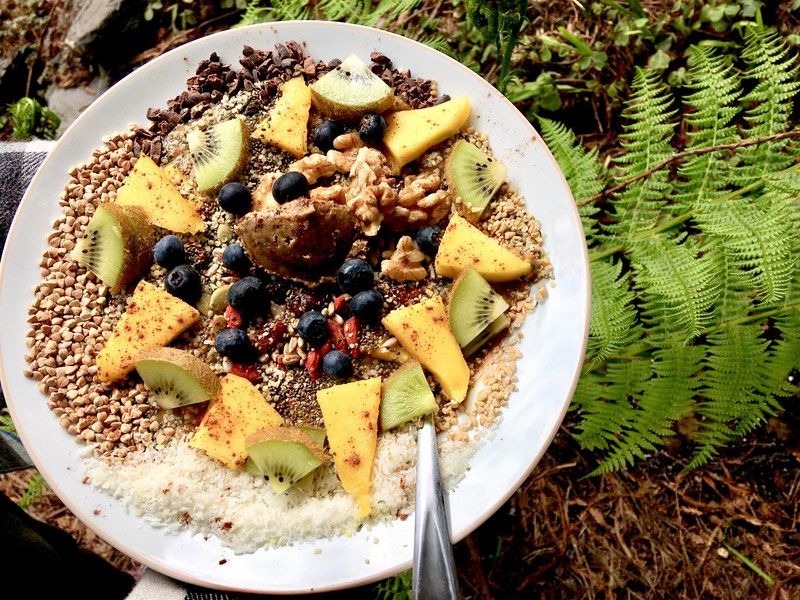
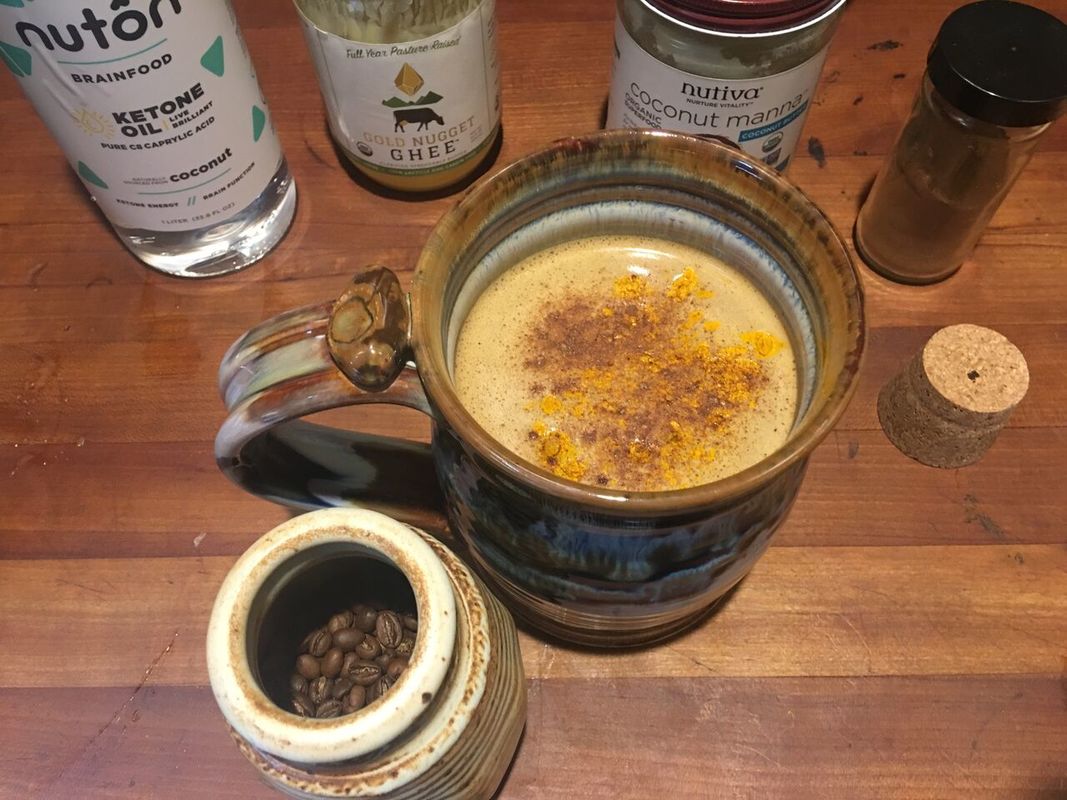
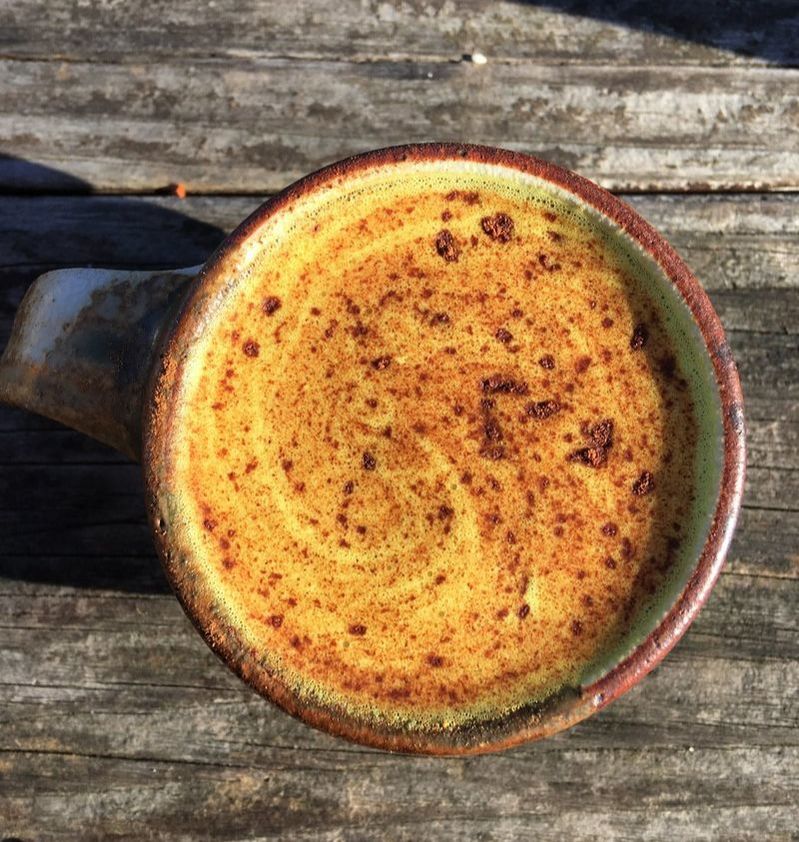
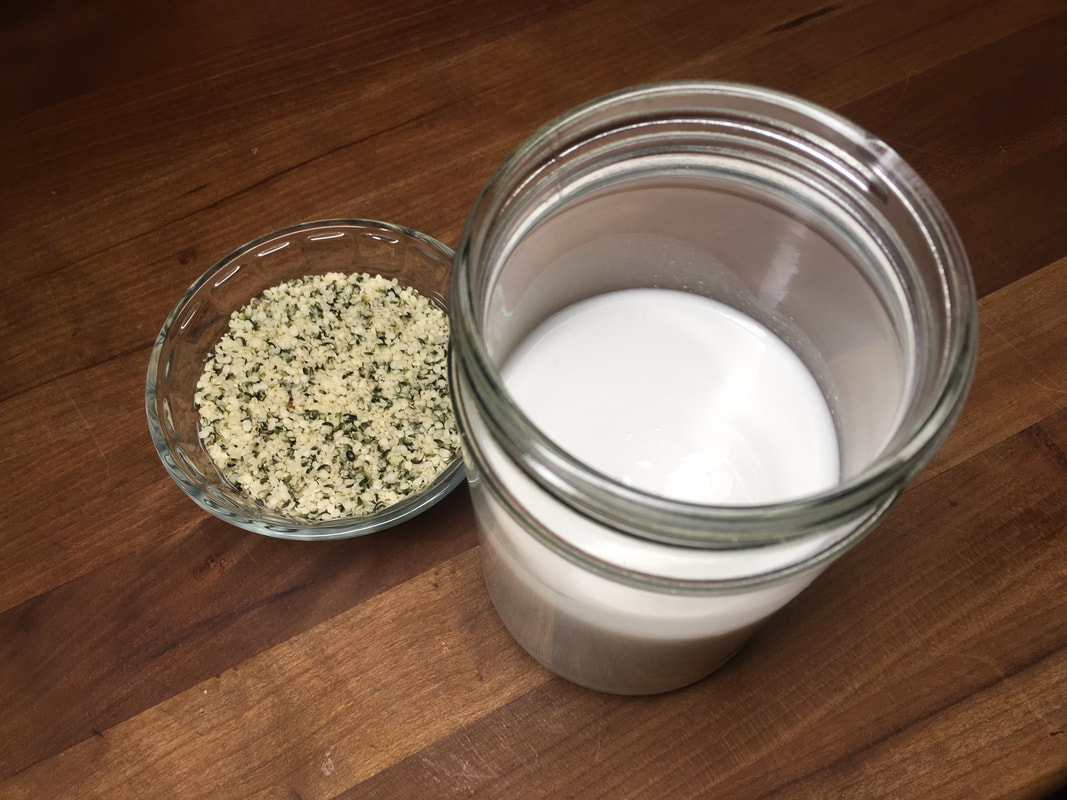
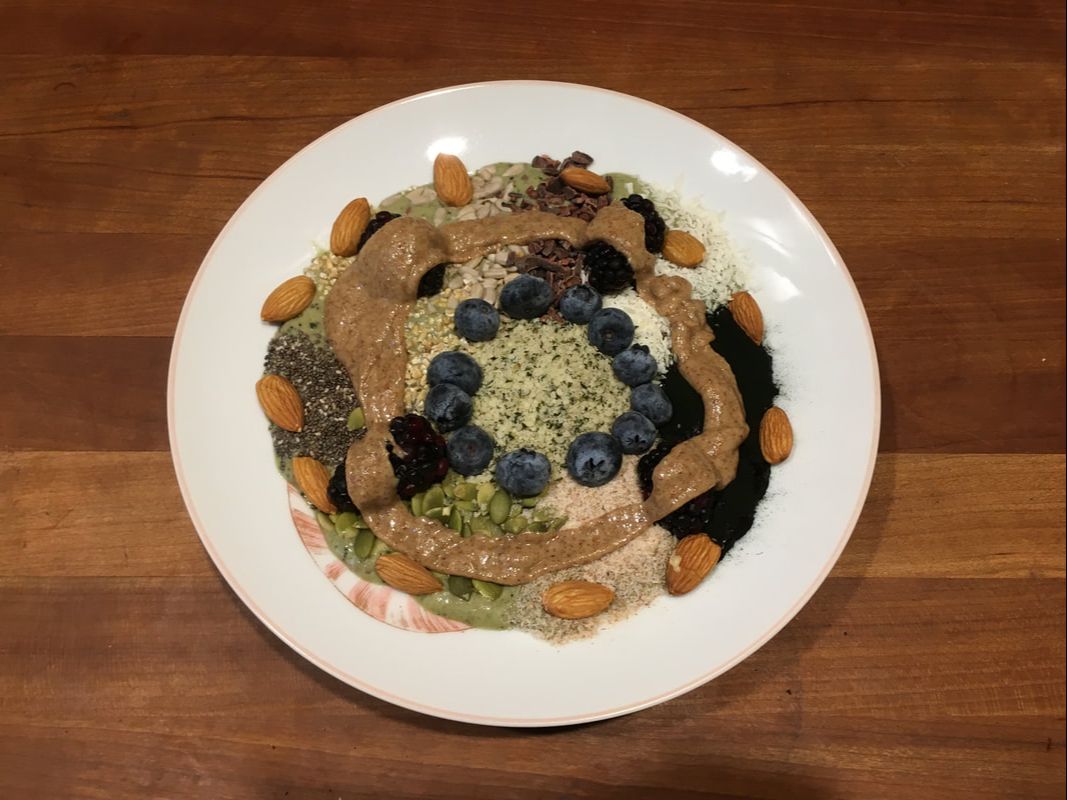
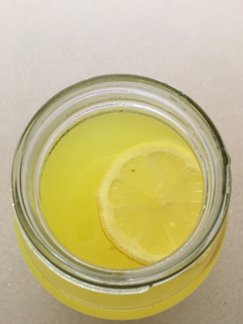
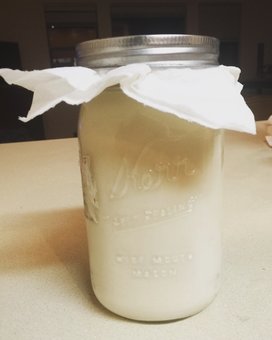
 RSS Feed
RSS Feed

